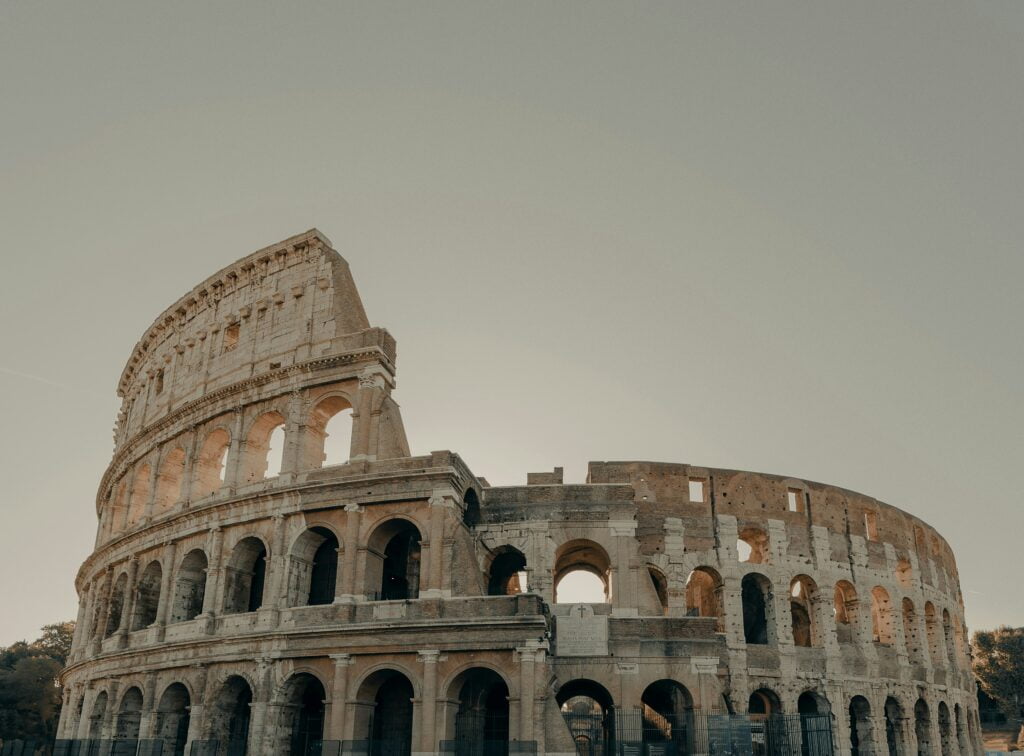Embarking on the journey of learning Italian introduces you to a world where every word is steeped in history and culture. The Italian language, known for its lyrical quality and expressive nature, offers a fascinating experience for anyone keen to dive into a new linguistic realm.
This guide will walk you through the essentials of Italian words and phrases, providing a solid foundation for anyone aspiring to speak Italian.

The Beauty of Basic Italian Words
Basic Italian words are your first steps into the language. They are the building blocks that will form the basis of your Italian vocabulary. Simple, yet profound, these words help in forming basic sentences and questions, essential for day-to-day communication in Italy. Understanding these fundamental words is not just about adding to your vocabulary; it’s about beginning to think and feel in Italian.
Common Italian Words and Phrases
Learning common Italian words and phrases is vital for anyone aiming to speak Italian fluently. Phrases like “va bene” (all right), “mi dispiace” (I’m sorry), and “per favore” (please) are used daily. These phrases help you navigate various situations, from asking for directions to expressing gratitude with “grazie mille” (thanks a lot).
The Role of Italian Words in Conversation
In any conversation, knowing the right words to use is crucial. Italian words vary in their formal and informal usage, an important aspect to consider when speaking. For instance, “ciao” can mean both hello and goodbye in informal settings, while “buona sera” (good evening) and “buona notte” (good night) are more formal. Understanding these nuances is key to effective communication.
Learning Italian: Building Blocks of the Language
The Structure of Italian Words
Italian words are beautiful in sound and structure. They often follow a rhythm that makes the language melodious. Words in Italian can be masculine or feminine, an important aspect to remember when constructing sentences. This gender agreement affects how words are pronounced and used in conversation.
The Importance of Practice in Learning Italian
To master Italian, consistent practice is essential. Regularly speaking and listening to Italian helps you internalize the language’s rhythm and pronunciation. Phrases like “dov’è il bagno?” (Where is the bathroom?) become more natural to you as you practice.
Italian Culture Through Language
Italian culture is deeply embedded in the language. Understanding Italian words and phrases gives you insight into the way Italians think, feel, and live. Words like “famiglia” (family) and “cibo” (food) reflect the importance of family and cuisine in Italian culture. This cultural understanding enhances the richness of your language learning experience.
The Joy of Ordering Food in Italian
Ordering food in Italian is a delightful experience that combines language and cuisine. Knowing phrases like “Il conto, per favore” (The bill, please) or specific food items like “pizza” helps you navigate Italian menus and enjoy the country’s famous culinary delights.
The Intricacies of Italian Phrases
Italian phrases often carry meanings that go beyond their literal translation. Phrases like “Tutto bene” (All is well) are not just about their direct meaning but also convey a sense of well-being and contentment. Learning these phrases helps you understand and express complex emotions and ideas in Italian.
Italian words and phrases are more than just tools for communication; they are a reflection of Italy’s rich history, culture, and lifestyle. As you continue to learn Italian, remember that each word and phrase you master brings you closer to understanding the heart and soul of Italy. Stay curious, practice regularly, and enjoy the beautiful journey of learning one of the world’s most romantic languages.
Advancing Your Italian: Beyond the Basics

Embracing Italian as a New Language
When you decide to learn Italian, you’re not just learning a foreign language; you’re embracing a new mode of expression. Italian, with its lyrical sounds and expressive nuances, offers a unique perspective on communication and culture. For English speakers, this shift can be both challenging and exhilarating, providing a fresh lens through which to view the world.
Common Italian Phrases for Everyday Use
As you progress in your Italian learning journey, acquainting yourself with common Italian phrases becomes increasingly important. Phrases like “Mi chiamo” (My name is) and “Ho bisogno di” (I need) are essential in everyday conversations. They help you introduce yourself, express your needs, and connect with Italian speakers in a meaningful way.
The Role of Online Courses in Learning Italian
For many learners, online courses are a valuable resource for learning Italian. These courses offer structured learning paths, from beginner to advanced levels, and are especially beneficial for those who may not have access to in-person classes. They provide flexibility, allowing learners to study at their own pace and revisit material as needed.
Italian Word Nuances for English Speakers
For English speakers, understanding the nuances of each Italian word is crucial. The Italian language often expresses concepts in a way that is quite different from English. For instance, “Dov’è” (Where is) is a common phrase used in questions like “Dov’è il bagno?” (Where is the bathroom?). Grasping these subtle differences in usage is key to becoming proficient in Italian.
Mastering Pronunciation: The Sound of Italian
Pronunciation is a vital aspect of learning any new language, and Italian is no exception. The language is known for its clear vowel sounds and rhythmic intonation. Phrases like “Dov’è” require attention to vowel pronunciation to be understood correctly. Practice speaking out loud and listening to native speakers to improve your pronunciation.
Italian for English Speakers: Bridging the Gap

For those who speak English and are learning Italian, finding parallels between the two languages can be helpful. While Italian and English have distinct grammatical structures and vocabularies, some similarities can aid in the learning process. For example, many English words have Latin roots, which can be similar to Italian words.
The Beauty of Learning Common Italian Expressions
Italian expressions often reflect the culture’s values and ways of life. Learning common expressions like “Va bene” (Okay) or “Grazie mille” (Thank you very much) is not just about adding phrases to your vocabulary; it’s about understanding the Italian way of thinking and interacting.
Italian in the Digital Age: Language Learning Online
Learning Italian online has become increasingly accessible. From language apps to virtual classrooms, the internet offers a plethora of resources for Italian learners. These digital platforms often provide interactive and engaging content, making the process of learning a new language enjoyable and effective.
Learning Italian as a new language opens up a world of cultural richness and linguistic diversity. By immersing yourself in the sounds, words, and phrases of Italian, and leveraging online resources, you can bridge the gap between understanding and speaking the language fluently. Remember, every step in this language journey brings you closer to mastering the beautiful Italian language.
Immersing Yourself in Italian: Language and Culture
Navigating Italian Cities: From Rome to the Train Station
When visiting Italy, knowing how to navigate its cities is crucial. In Rome, for example, phrases like “Dove è la stazione?” (Where is the train station?) are invaluable. Whether you’re exploring the ancient streets of Rome or catching a train to another picturesque city, these phrases make your journey smoother and more enjoyable.
Essential Italian Phrases for Travel

Travel in Italy calls for a set of essential phrases. “Buongiorno” (Good morning) is a polite way to greet people, reflecting the Italian emphasis on courtesy. Other useful phrases include “Un biglietto per la spiaggia, per favore” (A ticket to the beach, please) for those sunny days by the sea, or “Sono allergica” (I am allergic) for dietary concerns.
Italian in Daily Life: Yesterday, Today, and Tomorrow
Incorporating Italian into daily conversations helps solidify your grasp of the language. Using phrases like “Ieri, oggi” (Yesterday, today) not only aids in practicing time-related vocabulary but also in understanding the Italian perspective of time and life. It’s a beautiful way to connect more deeply with the language and its cultural significance.
Personal Introductions in Italian
Introducing yourself is a fundamental aspect of any conversation. Phrases like “Mi chiamo” (My name is) and “Ti chiami” (Your name is) are crucial in making new acquaintances. These phrases are not only useful in social situations but also in professional settings, making them versatile tools in your Italian vocabulary.
The Art of Italian Conversation
Conversational Italian is an art that combines language with culture. Understanding common conversational phrases and the contexts in which they are used is key to effective communication. Whether it’s discussing life in Rome or asking for directions to the nearest train station, these interactions are opportunities to practice and improve your Italian speaking skills.
Conclusion
Learning Italian opens up a world of cultural and linguistic richness. From navigating the historic streets of Rome to engaging in everyday conversations, each phrase and word you learn brings you closer to understanding the heart of Italian culture. Remember, the journey of learning Italian is as beautiful and enriching as the language itself.
Frequently Asked Questions

What are popular Italian words?
Popular Italian words include “ciao” (hello/goodbye), “grazie” (thank you), and “amore” (love). These words are frequently used in everyday Italian conversations and reflect key aspects of Italian culture.
What is a common Italian saying?
A common Italian saying is “La vita è bella,” which means “Life is beautiful.” This phrase reflects the Italian attitude towards life, emphasizing beauty and positivity.
What are some beautiful words in Italian?
Beautiful words in Italian include “speranza” (hope), “stella” (star), and “luminoso” (bright). These words are notable for their melodic sound and the evocative imagery they conjure.



3 comments
The idea of every word holding centuries of history and dripping with vibrant expression is so alluring. It’s not just learning a language, it’s like stepping into a whole new cultural wonderland. In a small world cup, you will need to come up with many different strategies to be able to defeat your opponents and win more easily.
Not only has learning Italian improved my language abilities, but it has also strengthened my ties to Italy’s past and present. I can’t wait to learn new languages and delve deeper into Italy’s essence.
Learning Italian is a journey that goes beyond memorizing vocabulary and Tunnel Rush grammar. By learning Italian, you gain a deeper understanding of Italian culture and way of life.